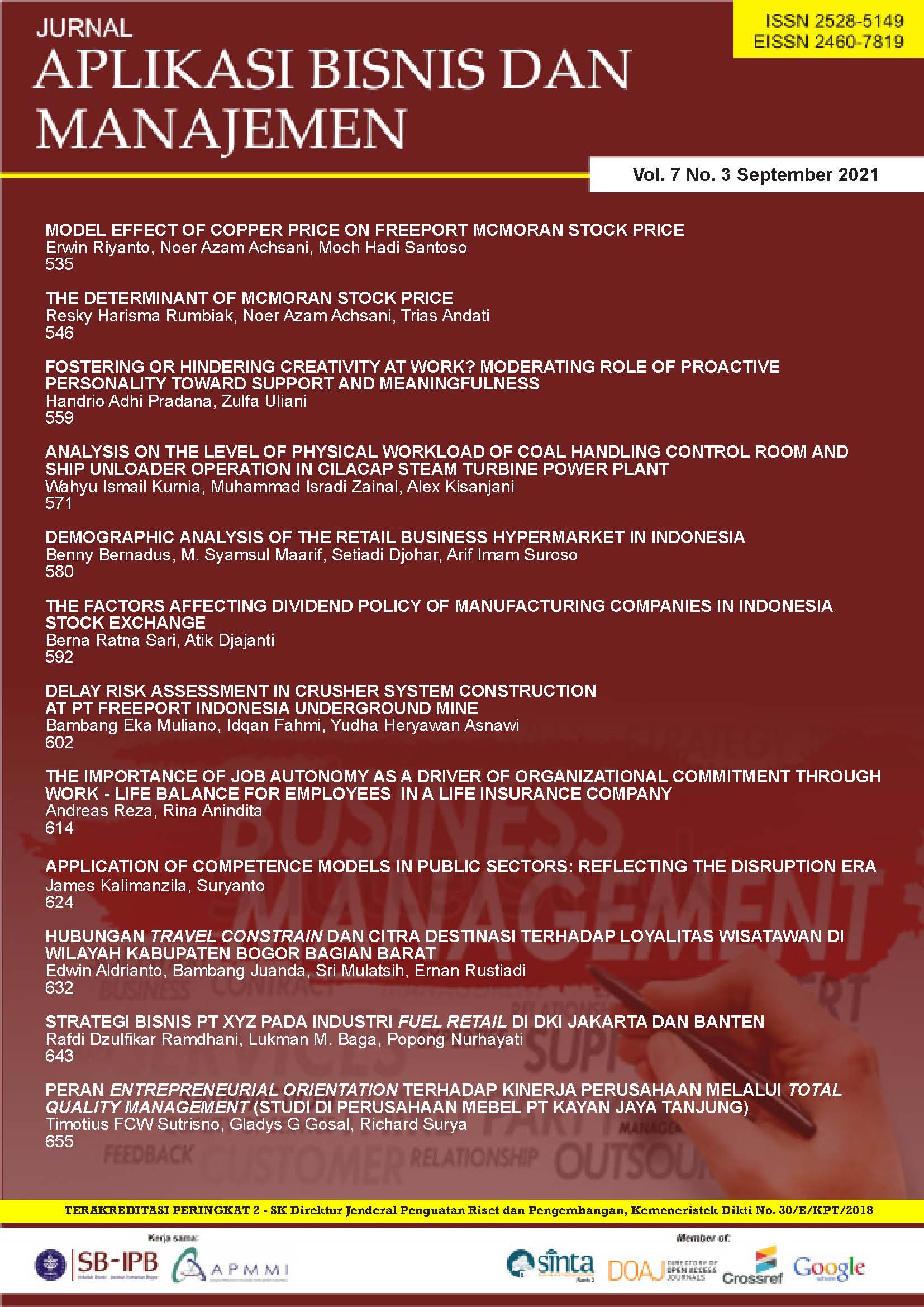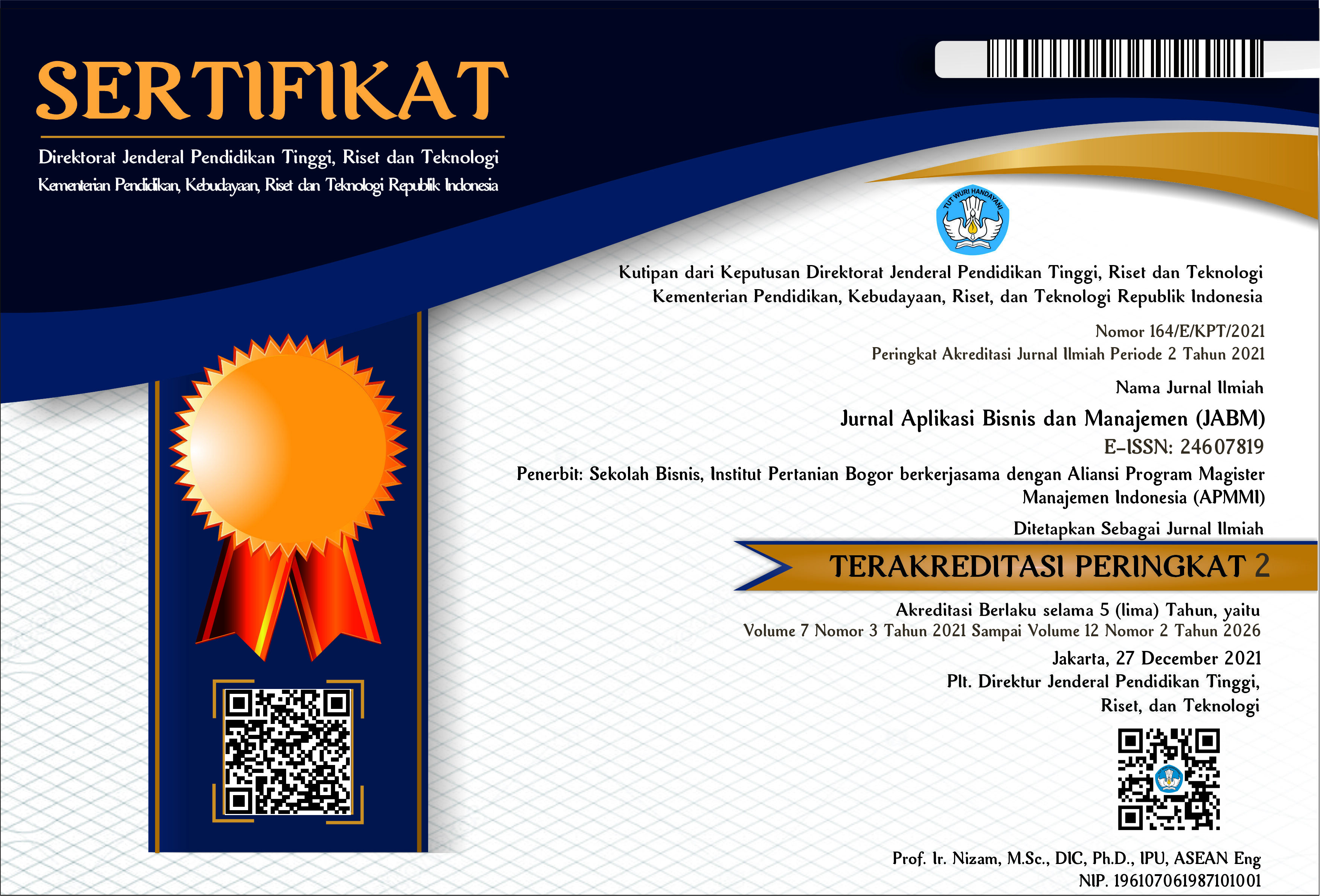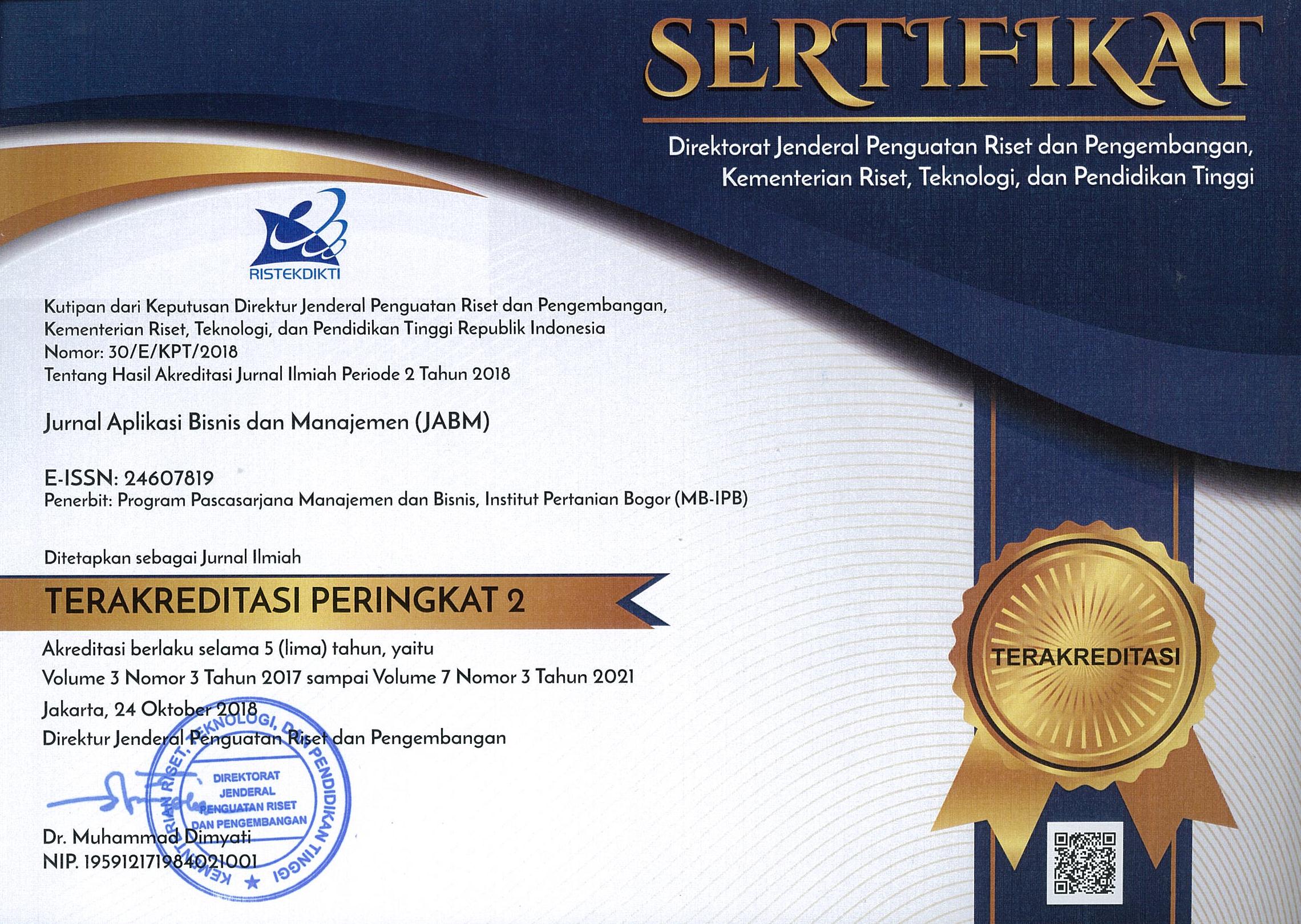DEMOGRAPHIC ANALYSIS OF THE RETAIL BUSINESS HYPERMARKET IN INDONESIA
Abstract
The hypermarket business in Indonesia has been declining for 5 years. This study aims to analyze the condition of hypermarket retail in Indonesia through demographic analysis. This descriptive study uses research measuring instrument using a Likert scale questionnaire 1–5, the number of samples is 660. The new concept of retail organizational performance, not only involves marketing aspects: service quality, customer trust, and customer loyalty but also includes organizational capability variables as variables that affect retail business performance; Hypermarket studies cover a national scope in contrast to other retail studies which are only locally specific. The results showed that the characteristics of hypermarket customers in Indonesia are; The majority of women are married, have a bachelor/undergraduate education, age range 46-55 years, live in the Jabodetabek area, work as private employees, monthly expenditures are Rp10,000,100– Rp12,500,000, the number of visits in a year to hypermarkets is 7–10 times on average and 11–14 times, and hypermart stores are the most visited. Hypermarket conditions: service quality and organizational capabilities are in the criteria of both low borderline to moderate, customer trust, customer loyalty, and business performance in moderate conditions.
Keywords: hypermarket business, service quality, customer trust, customer loyalty, organizational performance








